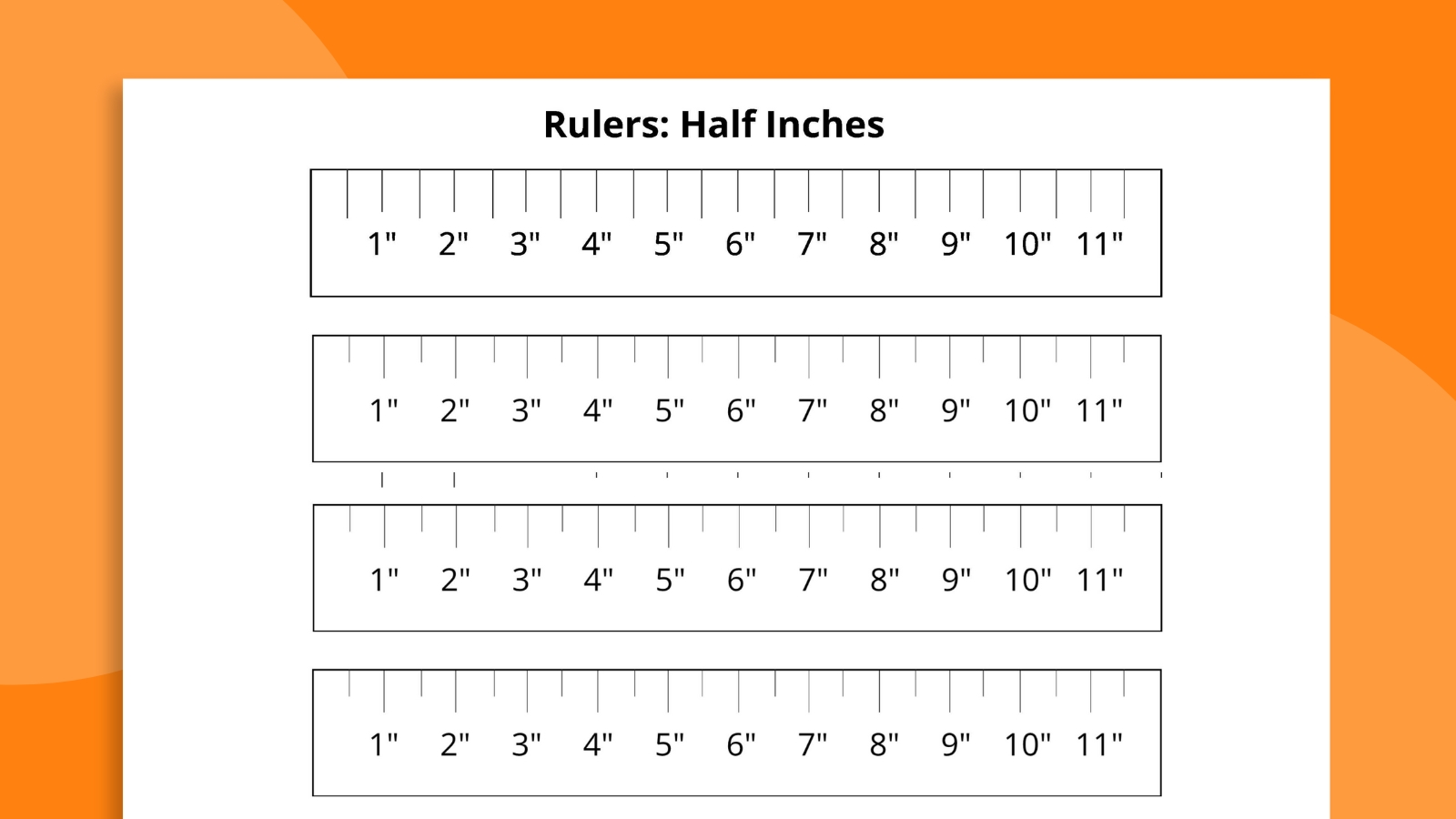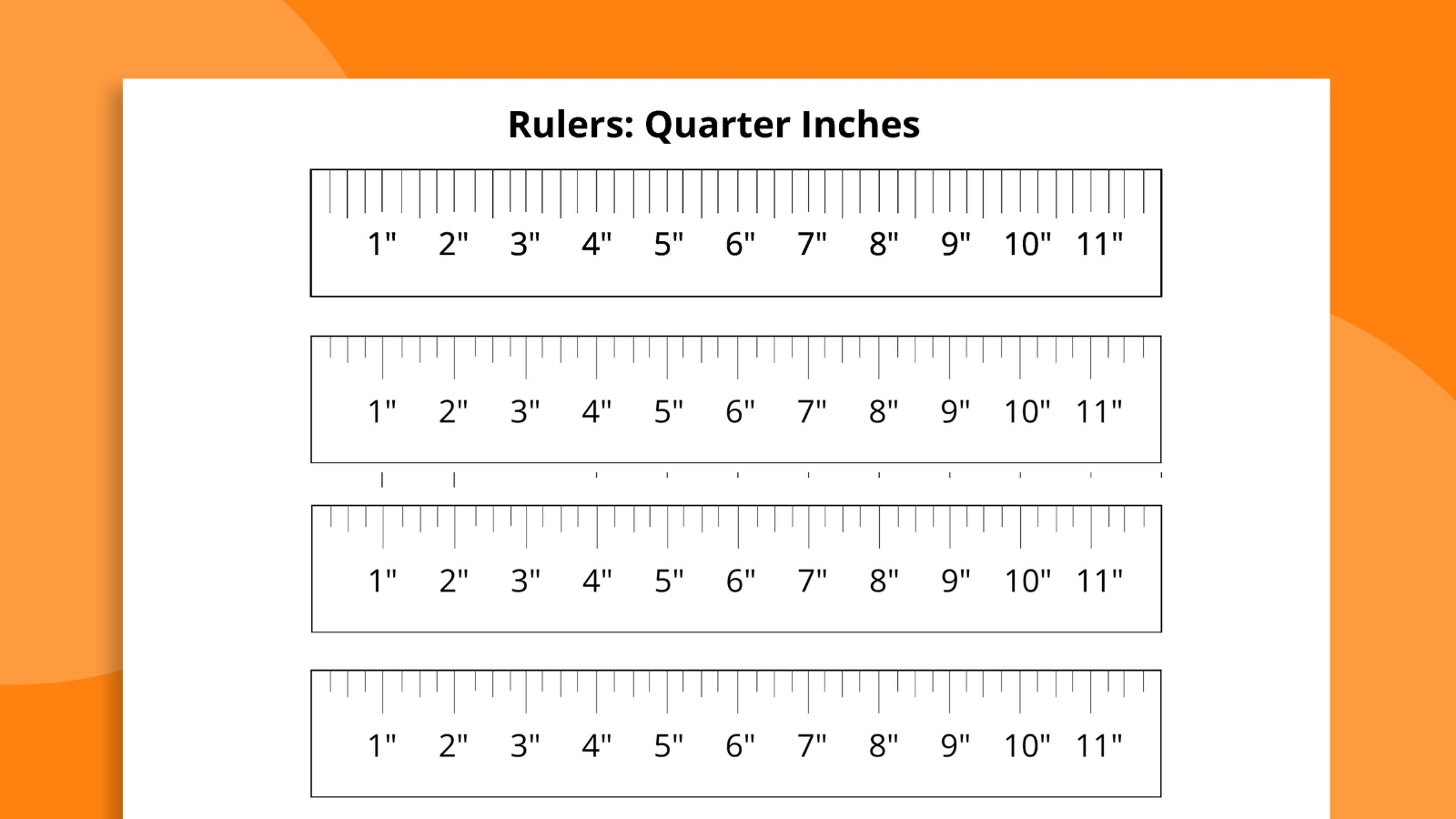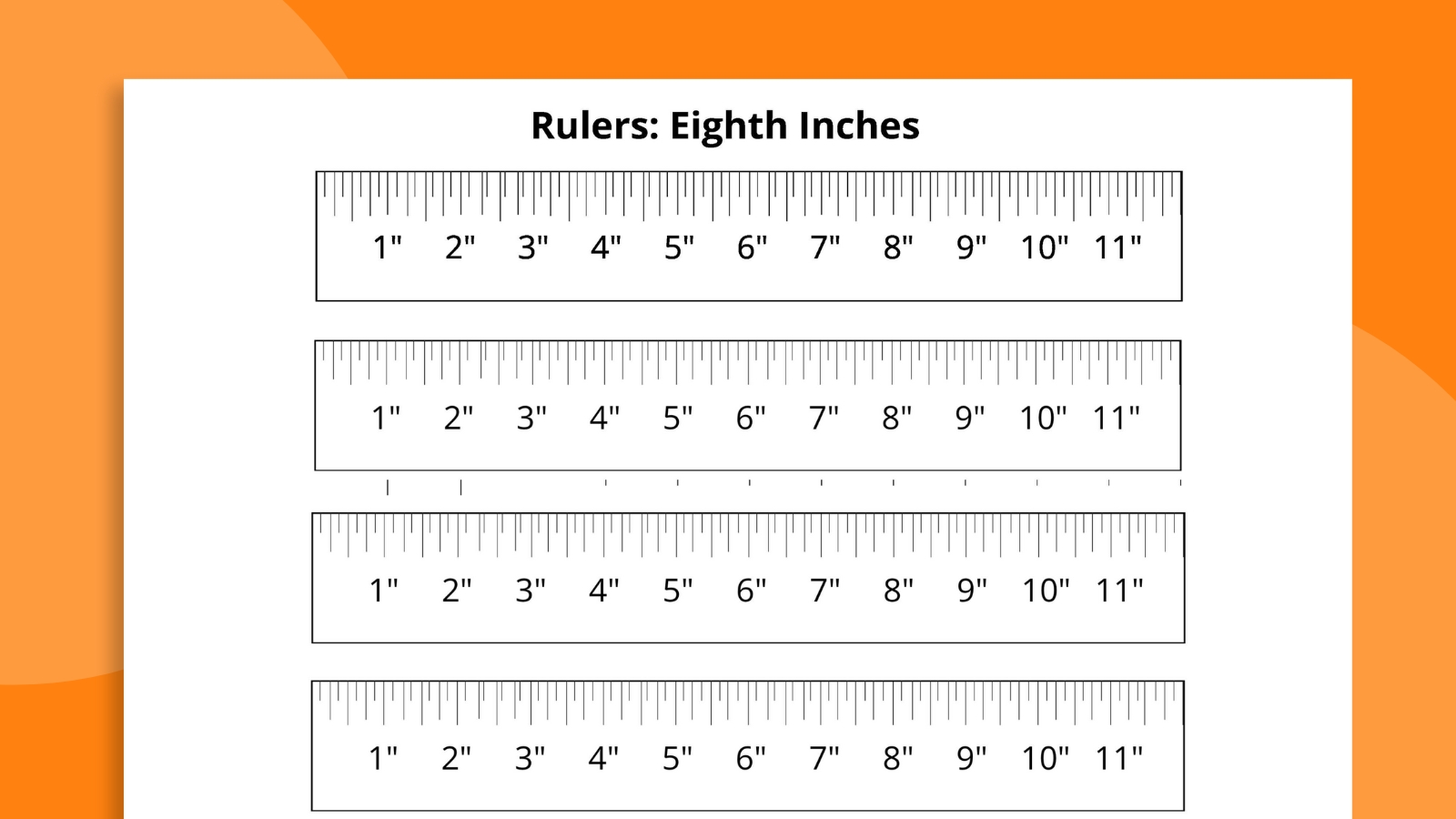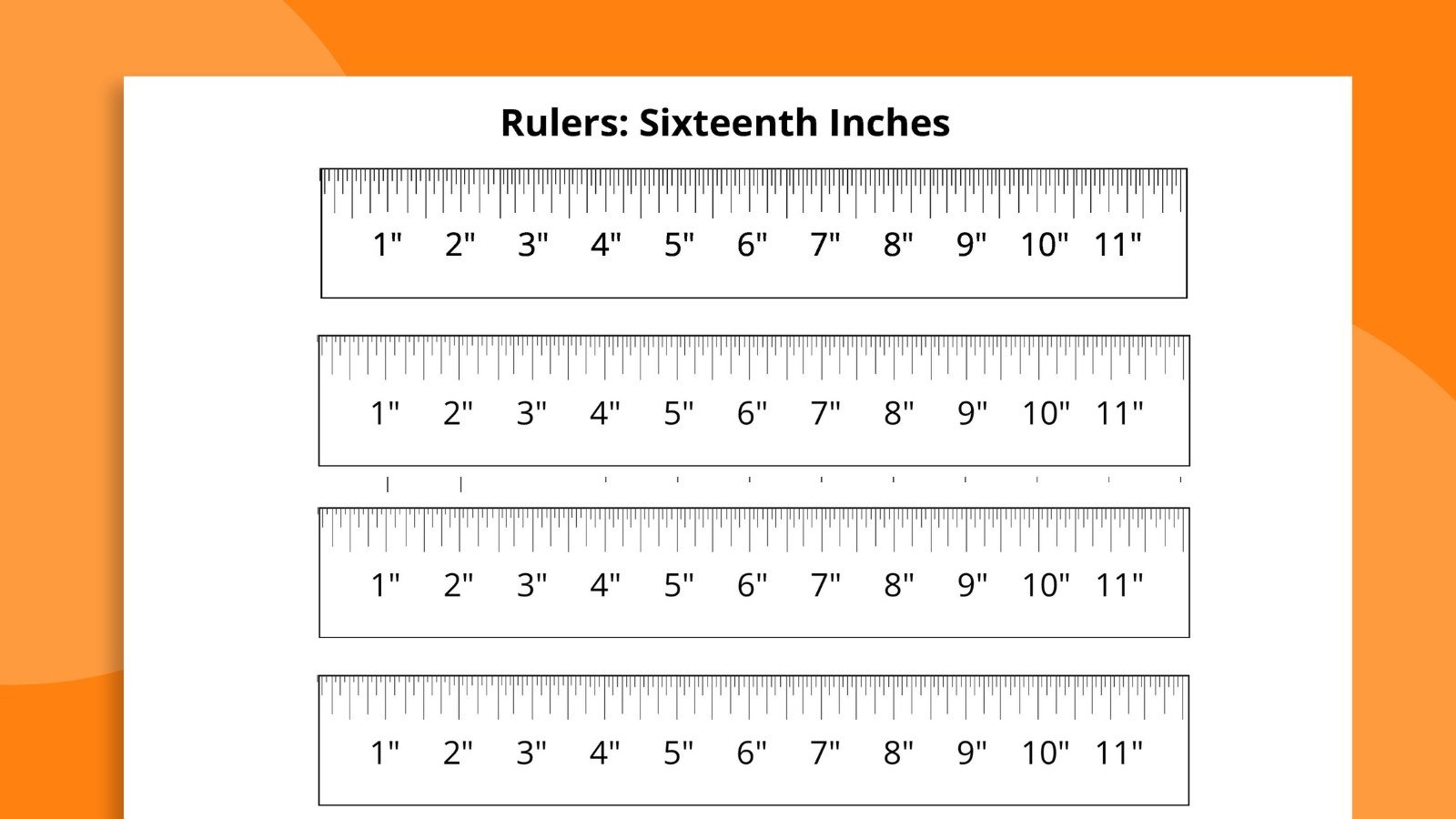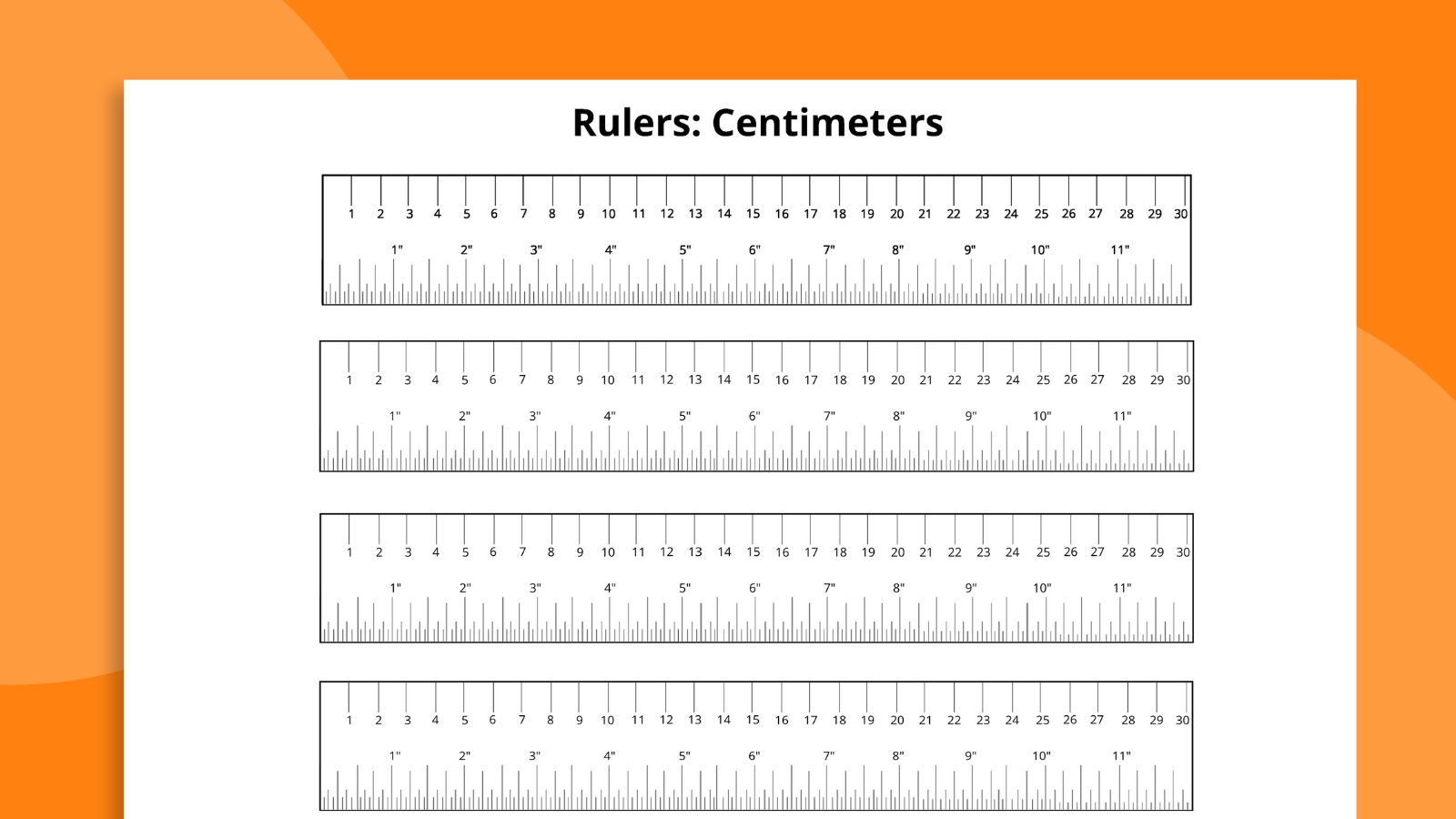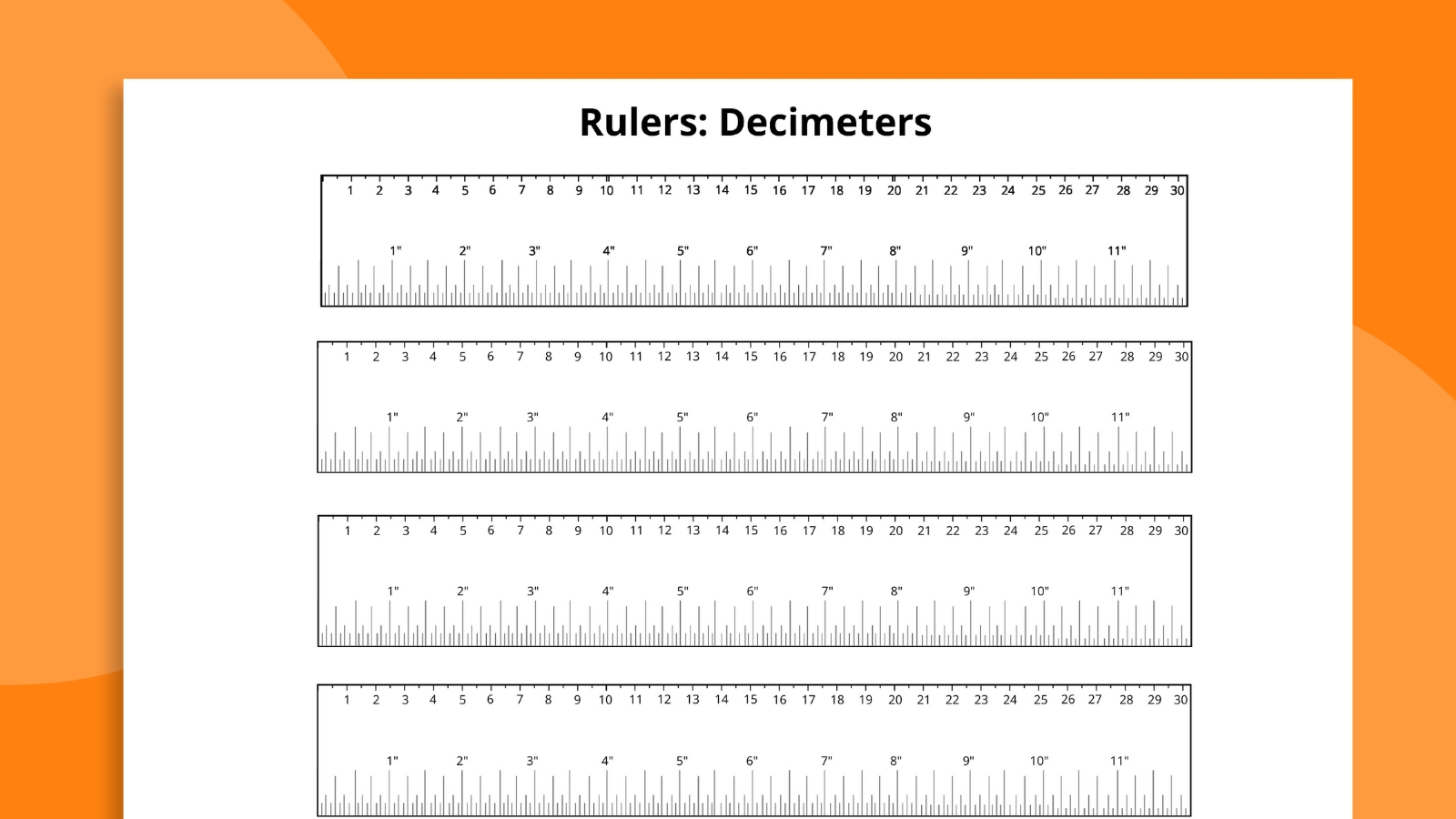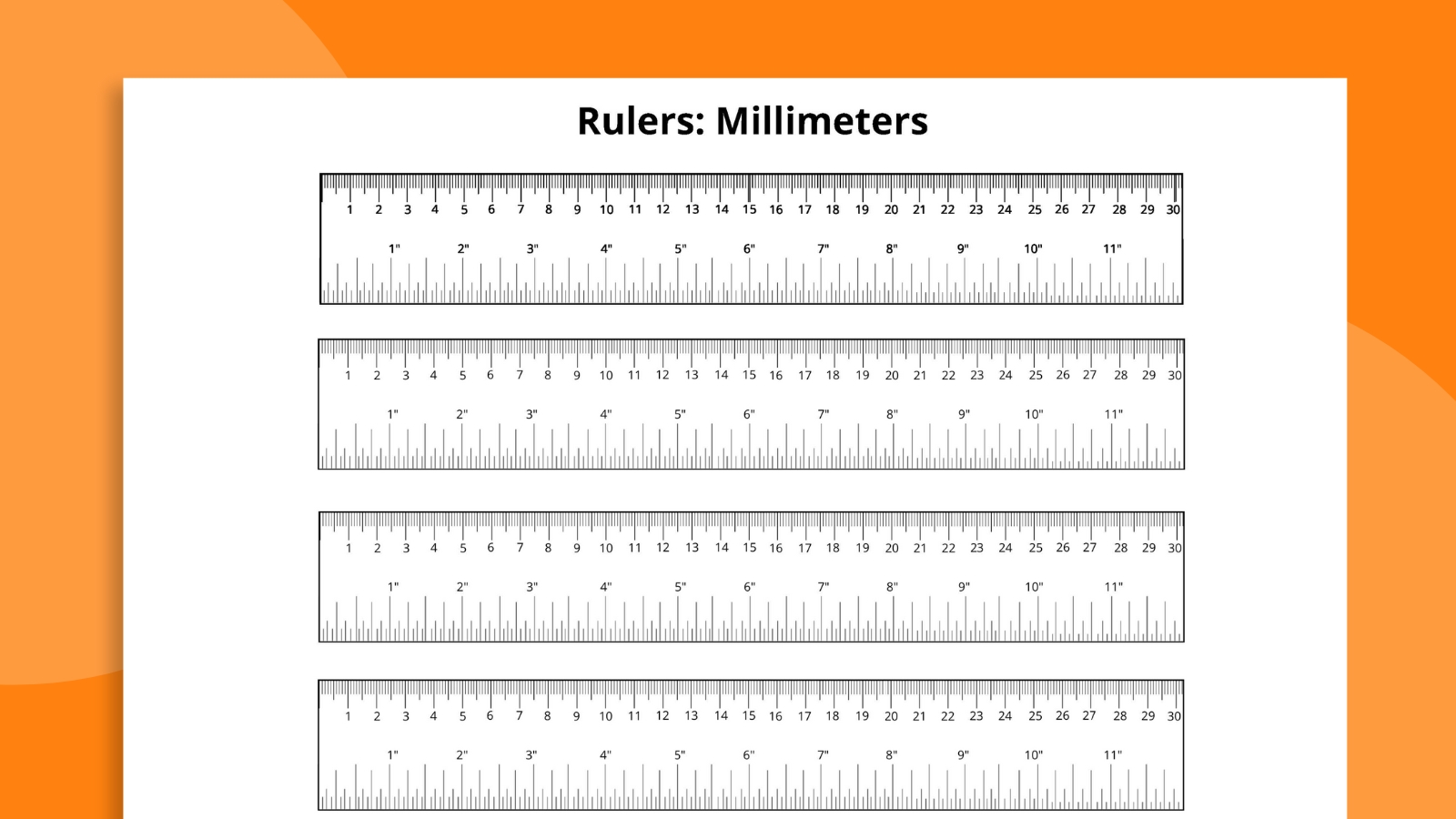Kids enjoy comparing things. You’ve probably heard remarks like, “My pencil is the shortest in the class,” or “That’s the longest caterpillar I’ve ever seen.” They also like using math tools like rulers. They’re hands-on and make learning more concrete while letting kids physically “do something,” which they like as well. Grab our free printable ruler bundle for a simple and inexpensive math tool you can keep on hand in your classroom.
These printable rulers feature both standard American and metric systems and come in different levels of gradation so little ones don’t get confused by “so many lines” while older students will appreciate how exactly they can measure. These are math tools, and it always makes sense to use the right tool for the job. We’re giving you a few to choose from so you can meet your students’ needs and learning levels.
Free Printable Rulers
Activities Using Printable Rulers
These rulers are very helpful to have as you get kids involved in the activities below. However, before you start, here’s a tip: Do some practice with kids, emphasizing how in order to measure accurately, the end of the ruler has to align with the end of the object. (Sometimes students line up the end of the object with the number 1 on the ruler.) Making sure everyone understands this will help to support successful measurement experiences.
Another good learning tip is to always ask kids to estimate before they measure. Then have them compare their estimates to the actual measurement. This helps build measurement number sense, which is a valuable everyday math skill.
Here are some fun activities for kids using the rulers.
Are They All the Same?
Ask students to estimate the length of their thumb from the middle of the knuckle to the tip. Write down all estimates on the board. Give each student an age-appropriate ruler, paper, and a pencil. Have students partner up. Then ask them to measure each other’s thumbs from the middle of the knuckle to the tip and record both measurements on their papers. Demonstrate this first.
Then ask students to share some measurements and compare them to the estimates. Were all thumb lengths the same? What was the range of measurements? Continue by having students measure the lengths of their pinkies and forefingers. Estimate first, measure, record, share, compare, and discuss.
Measurement Station Rotation
Set up 10 measurement stations around the room and number them 1 through 10. Each measurement station has an object to be measured. Items could include things like books, markers, plants, a glove, a banana, whatever you like. Give each student a ruler, lined paper, and a pencil. Have them number the paper from 1 through 10. Set them off to start at different stations measuring the object there and recording it on the correct line. Before they measure, remind them to write down an estimate first, then measure. When complete, they rotate to the next station.
When everyone has gone through all 10 stations, share their results on the board. If there are discrepancies among measurements, bring the object up and have volunteers come up to re-measure. We can all learn from errors in technique or perhaps reading the ruler incorrectly. Invite students to supply or bring in objects of interest for the next station rotation.
Draw and Measure
Give each student a ruler, pencil, and drawing paper. Ask students to fold the paper in half and number the sections 1 through 4, with 2 on the front and 2 on the back. Tell students to draw something in each box, like a triangle, and also what the measurements for the drawing should be. For example, you might say, “In Box #1, draw a triangle and make it 2 inches tall and 2 inches wide.”
Model this, showing how you need to measure first, make some guide lines like top and bottom marks, and then begin to draw.
Students will measure and draw accordingly as you give directions for the four boxes. Choose things that are simple to draw, like basic shapes. Use measurements you want your class to practice.
Measure Hunt
Give each student a ruler, lined paper, and a pencil. Explain that students will be going on a Measure Hunt. (Sounds like Treasure Hunt, but no such luck.) They will need to go around the room and try to find, measure, and record information about the items you name. Here are some examples:
- Find the thickest book in the room. How thick is it? What is the title?
- Find the shortest thing you can in the room. How short is it? What is it?
- Find a doorknob or door handle. Where is it? How wide is it?
- Find the longest piece of paper you can. How long is it? Where is it?
You can deliberately bring in certain interesting objects and place them around the room for your Measure Hunt. When students complete their hunts, have them share results and compare.
Get your free Printable Ruler Bundle!
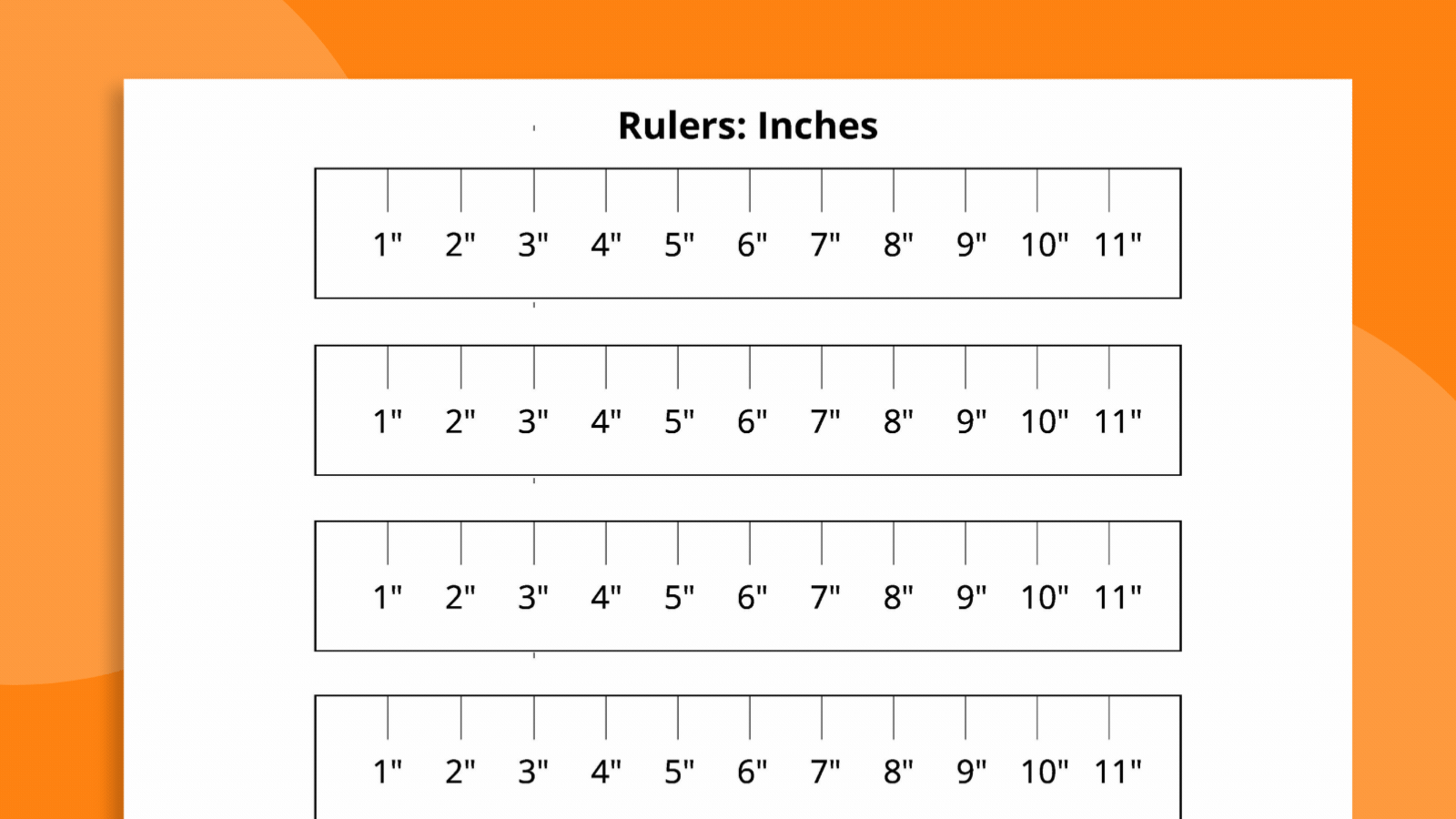
Just fill out the form on this page to grab your free printable copies of all the rulers above.



